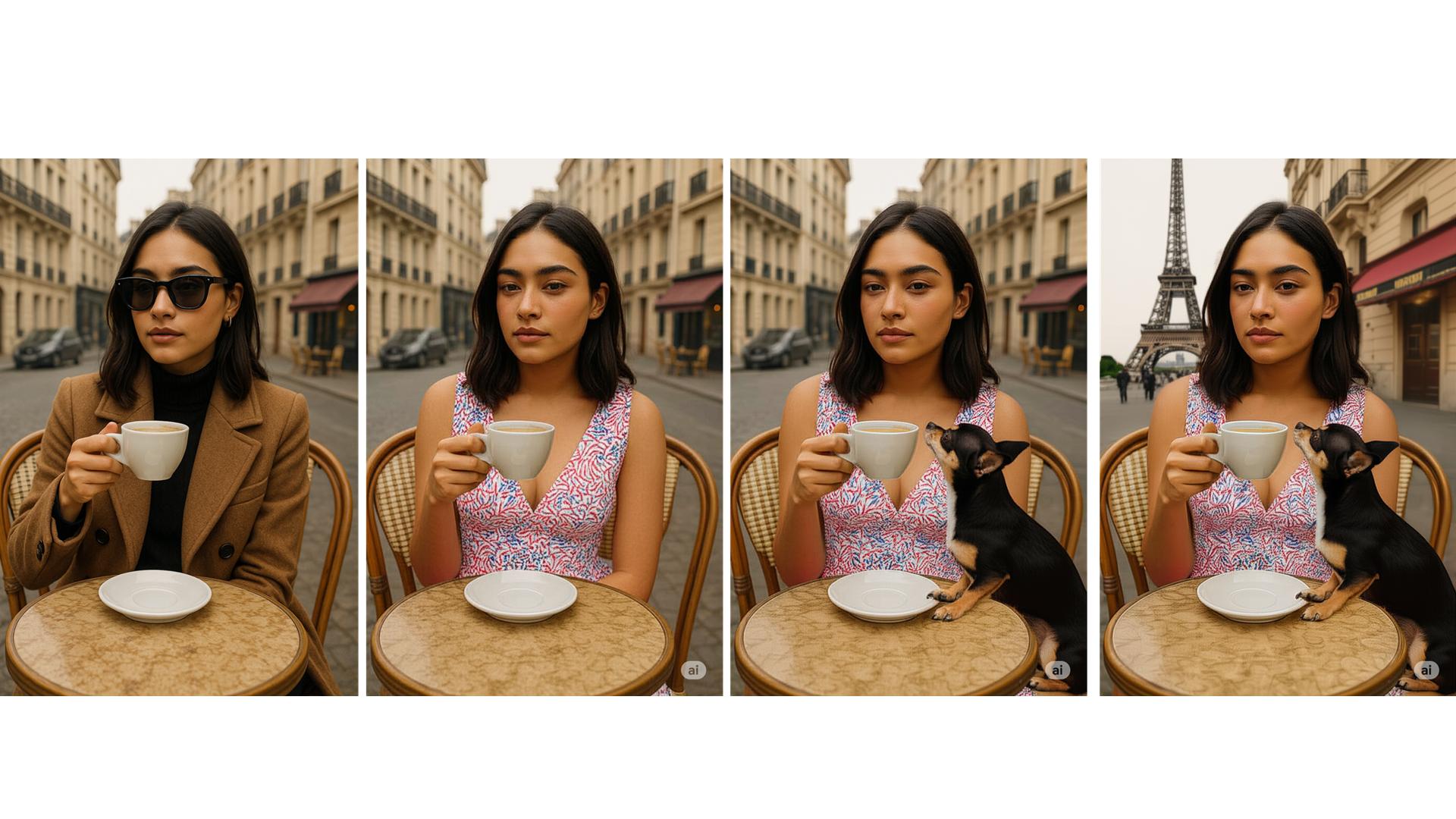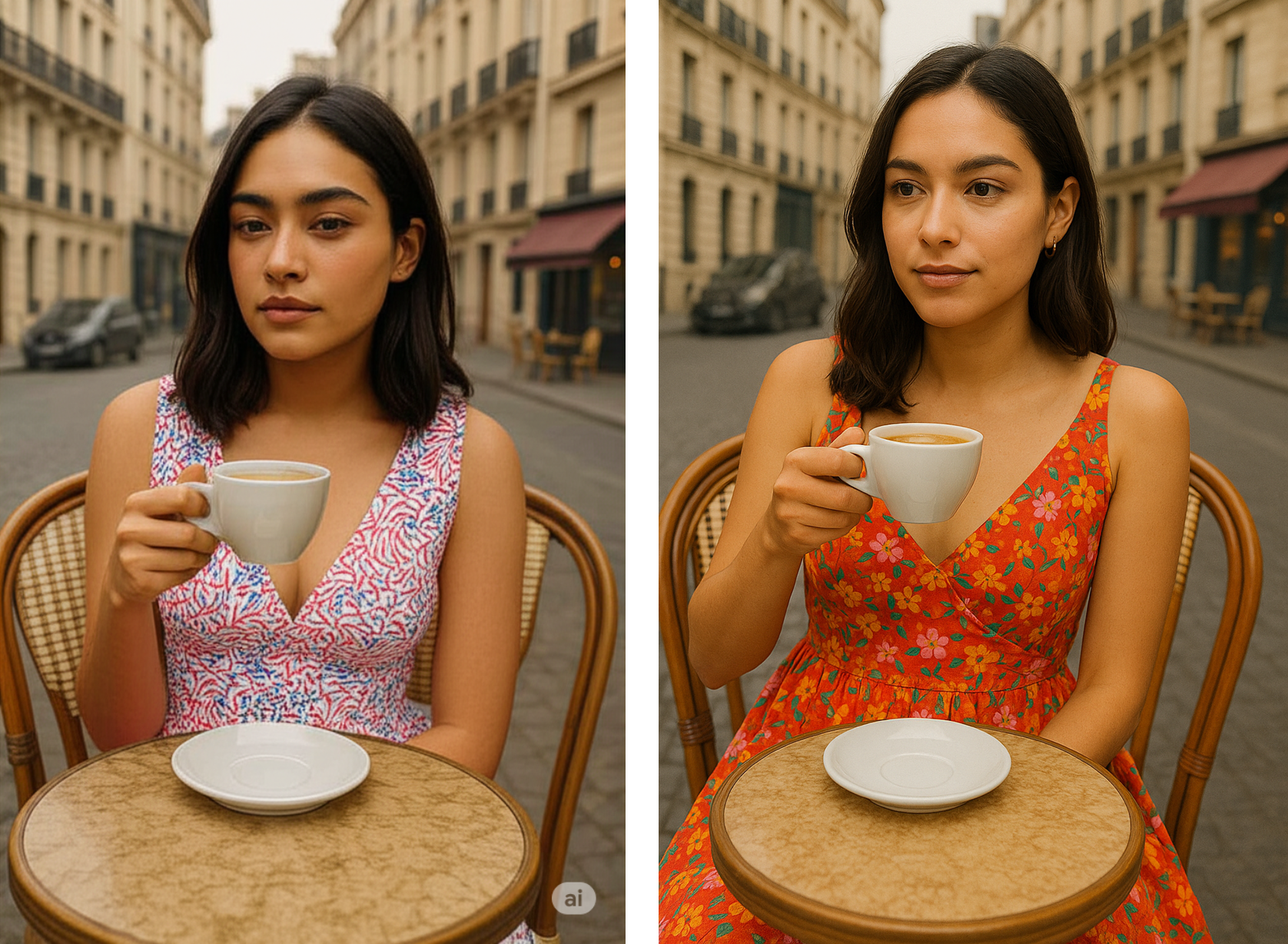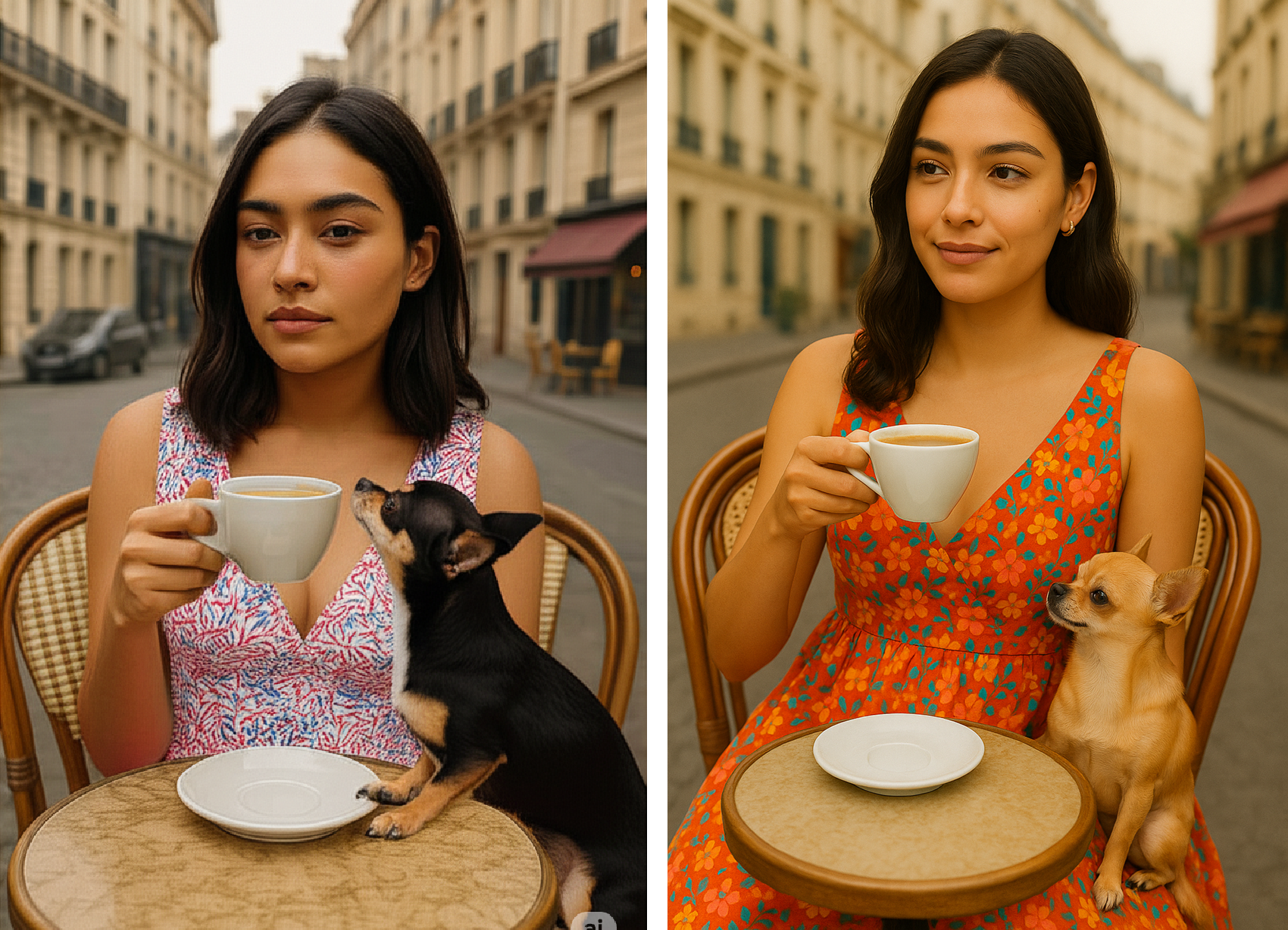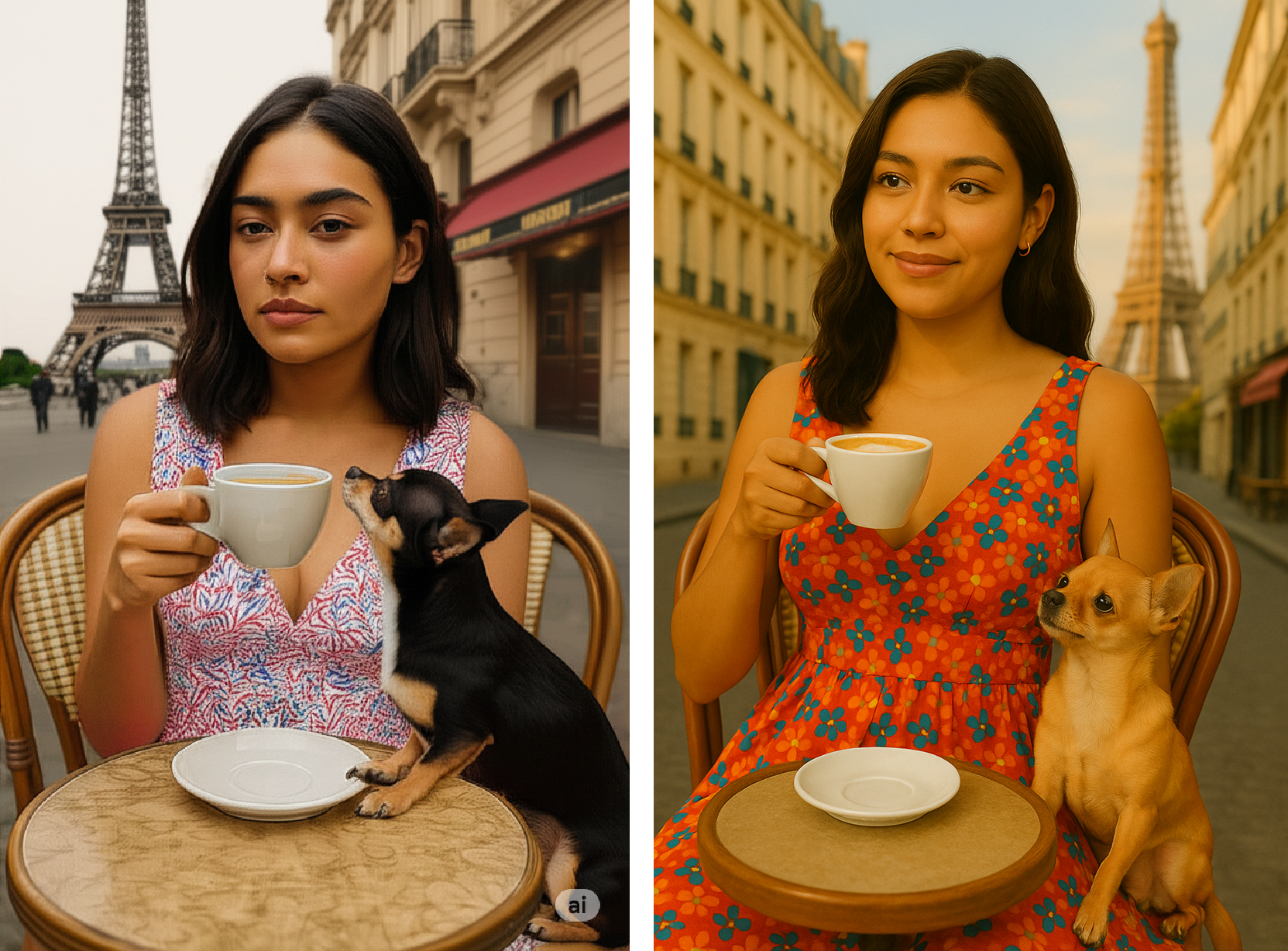I compared Google Gemini's new image editing feature to ChatGPT's, and it's much better at sticking to the original
And so much faster

AI image creators can be entertaining (or troubling) in their abilities, but all too often, they'll be great except for one glaring issue. Until recently, editing them meant you'd just get a brand new image that you'd hope would be pretty close to a fixed version of the original without new problems plaguing it.
Google Gemini recently upgraded its AI image creator with an editing feature that it claims will produce an image with only the requested changes to differentiate it from the previous version. ChatGPT offers to edit images by text prompt, too, but for precision, it offers a tool that lets you select the part of the image you want to edit and describe the change before rendering a new version.
ChatGPT hasn't boasted as much about fidelity to the original when you make the edits by text prompt, but in theory, it should recognize when you ask it to make a change to an image that you don't want anything else in the picture revamped. I decided to informally test how well Gemini and ChatGPT would perform at sticking to an original image and only changing what I describe in a series of prompts.
To keep things fair, I started with a base image produced by ChatGPT of a woman sitting at an outdoor café in Paris, drinking coffee, wearing a trendy coat, and sunglasses.
From there, I tried three editing prompts on both Gemini and ChatGPT, comparing how easily and accurately each one executed the edits, and only the edits. The images on the left were made by Gemini, and ChatGPT produced the ones on the right.

Summer wardrobe

I started a fresh conversation with both chatbots, uploaded the image, and then asked each of them to “change her outfit to a vibrant, casual summer dress and remove the sunglasses.”
This is the kind of edit that a decade ago would have taken me ages with software that would still have left her with weird eye shapes and awkward body positions.
Sign up for breaking news, reviews, opinion, top tech deals, and more.
One can debate the fashion choices, but there's no denying that they both largely followed the prompt. That said, it's also evident that Gemini adhered closer to the original image. ChatGPT made small adjustments in her expression, the size of the cup, plate, table, and hairstyle. They aren't huge, but mark changes beyond the outfit and eyewear. Plus, as occurred throughout the testing, Gemini took about 20 to 30 seconds, while ChatGPT's inarguably more powerful engine would take a few minutes to complete its edits.
Puppy time

Next, I added another character to the scene, albeit a canine one. I didn't want a big dog crowding the portrait, so I asked the two AI chatbots to “add a chihuahua sitting beside her, looking up at her affectionately.”
ChatGPT made an adorable puppy to sit in the woman's lap. Still, if it was the same woman from either of the two earlier pictures, she had had time to grow out her hair, put on a slightly bigger smile, and put on a very similar but somewhat different floral dress. The van on the street behind her had also moved away.
Gemini again stood out for keeping the illusion that it was the same photo as before, by adding a dog to differentiate it. While again, much faster than its rival, Gemini's result did lack a bit of ChatGPT's realism. You can see how the dog on the right is seated on the woman's lap. It's unclear how the dog made by Gemini is staying in position since its back paws are on the edge of the woman's leg. It almost looks like it's mid-fall off the table.
Tower tour

For the last edit, I wanted the image to be more obviously in Paris, so I asked Gemini and ChatGPT to “place the Eiffel Tower prominently in the background.”
This test covered embedding a piece of architecture, changing the entire background, and ensuring that scale and perspective matched the rest of the image. Gemini removed the building to the woman's left to make space for the tower, which seemed small, but not wildly out of place. The rest of the image maintained continuity, down to the uncomfortable sitting position of the dog.
But, at least Gemini's Eiffel Tower looked like the real thing. For once, it wasn't just continuity issues popping up for ChatGPT. The Eiffel Tower, placed behind the woman, looks like an odd matchstick creation, especially since the rest of the background stayed the same. It was like the Eiffel Tower's smaller, wooden sibling had gone for a walk down the street with the cafe.
And again, the woman had changed her dress and hair, while the dog seemed to have lost a bit of weight. Even beyond the quality of the new scenery, the image is undeniably not just an edited version of its previous iteration.
Editing ace
Gemini's image edits were fast and accurate, and mostly only changed what I asked in the way that I asked. I'd say it's great, especially for quick edits. ChatGPT takes way longer to process the request, and wasn't great at getting it right the first time. It would likely require a lot of back-and-forth in editing prompts to get just the changes you want unless you use the highlight tool, which takes up some extra time, too.
I still think ChatGPT's overall image quality is higher than Gemini's, but that only matters if you have patience and if ChatGPT gets it right the first time. I suspect I may use ChatGPT to make any images, but turn to Gemini if I want to make a few adjustments to an image that I otherwise find appealing.
You might also like

Eric Hal Schwartz is a freelance writer for TechRadar with more than 15 years of experience covering the intersection of the world and technology. For the last five years, he served as head writer for Voicebot.ai and was on the leading edge of reporting on generative AI and large language models. He's since become an expert on the products of generative AI models, such as OpenAI’s ChatGPT, Anthropic’s Claude, Google Gemini, and every other synthetic media tool. His experience runs the gamut of media, including print, digital, broadcast, and live events. Now, he's continuing to tell the stories people want and need to hear about the rapidly evolving AI space and its impact on their lives. Eric is based in New York City.
You must confirm your public display name before commenting
Please logout and then login again, you will then be prompted to enter your display name.